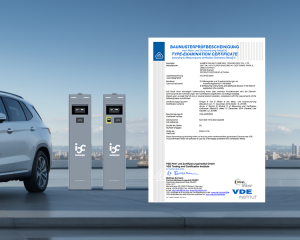Commercial EV Charging Solutions
The World’s 1st OCPP2.0.1 and Hubject ISO15118 PnC Certified EV Charging Solution
Powering the Future of Business
With the rise of electric fleets, corporate campuses, and retail spaces, offering commercial EV charging solutions is no longer a luxury—it’s a necessity. iocharger’s cutting-edge charging solutions help you meet this demand while driving your business toward a sustainable future.
AC Level 2
This smart, easy-to-install charger supports various connection methods and is compatible with all-electric vehicles.
- Configurable to 32A, 40A, 50A Max output
- OCPP 1.6J/ OCPP 2.0.1 full profiles support
- Intelligent Ethernet, Cellular, WLAN Switching
- Smart dynamic load balancing support
- Payment via RFID cards, Mobile App, and Plug&Charge (ISO15118)
- Remote control and monitoring
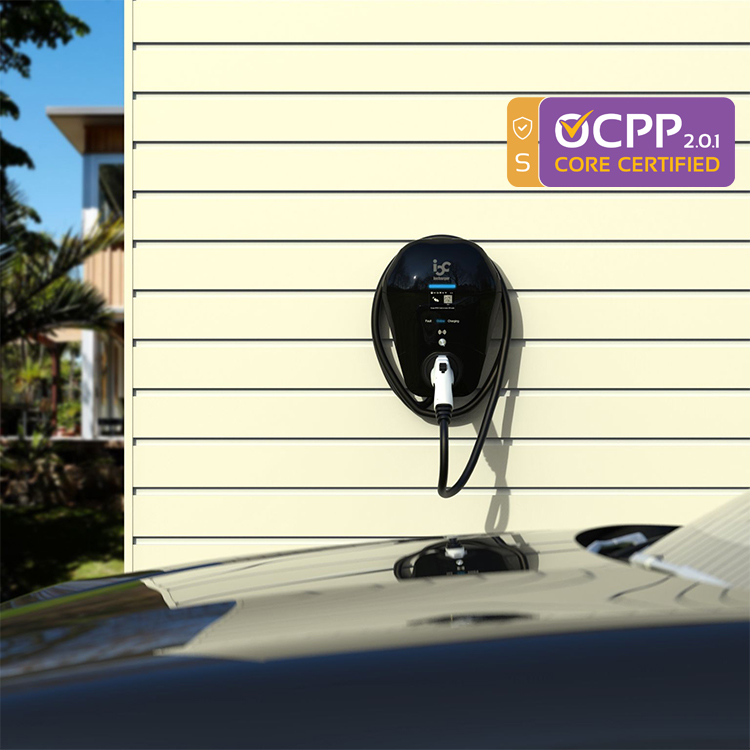
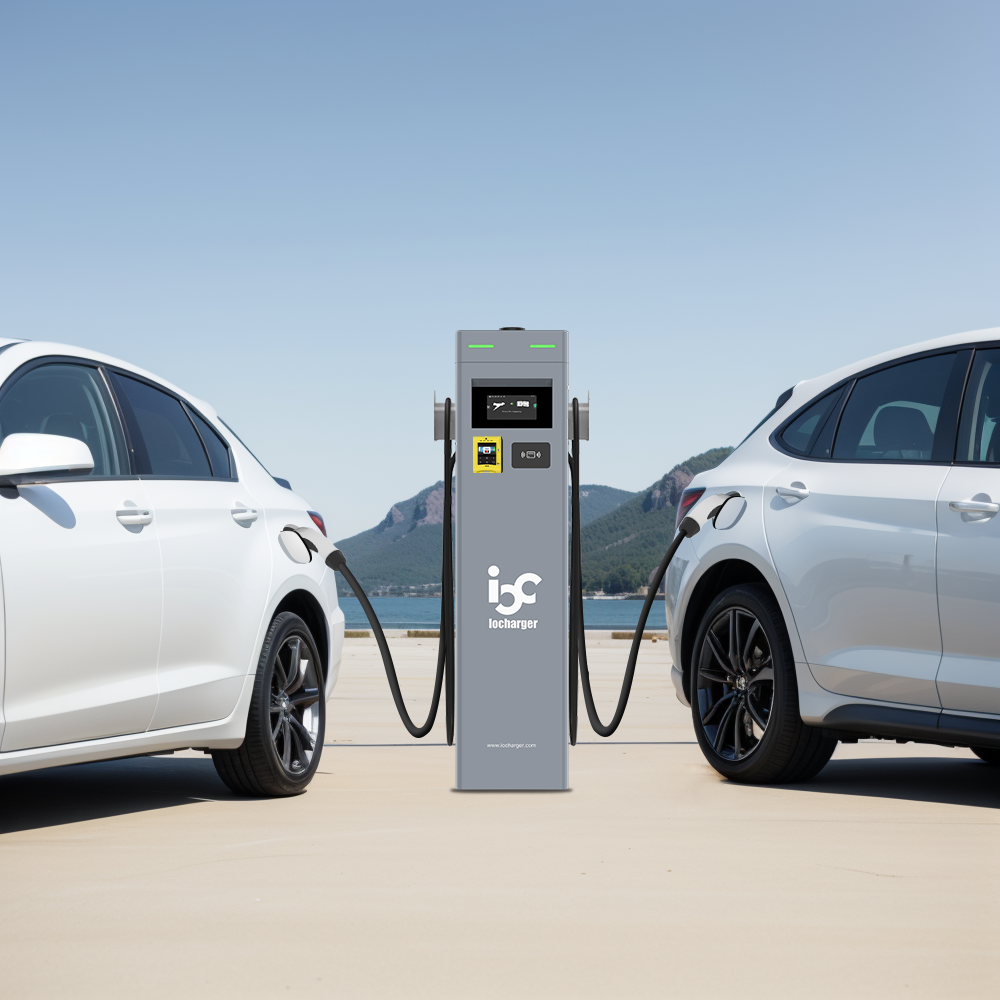
AC Dual Ports
Dual-port EV charger with two independent power inputs, compatible with POS terminals for credit card payments.
- Flexible output current/power configuration
- 2x MID Meter inside
- OCPP 1.6J/ OCPP 2.0.1 full profiles support
- Intelligent Ethernet, Cellular, WLAN Switching
- Support simultaneous charging and dynamic load balancing
- Payment via credit cards, RFID cards, Mobile App, and Plug&Charge (ISO15118)
DC Wallbox
A compact DC charging station that supports wall or pedestal mounting options.
- Max DC output power: 30kW or 60kW optional
- Output DC voltage range: 150V-1000V DC
- CCS 1/ CCS 2/ ChadeMO/ GB-T charging connector
- Cellular 4G LTE and Ethernet connection
- Support simultaneous charging and dynamic load balancing
- 8 inch LCD touch screen
- Payment via credit cards, RFID cards, Mobile App, Pin-Code(OTP) and Plug&Charge (ISO15118)
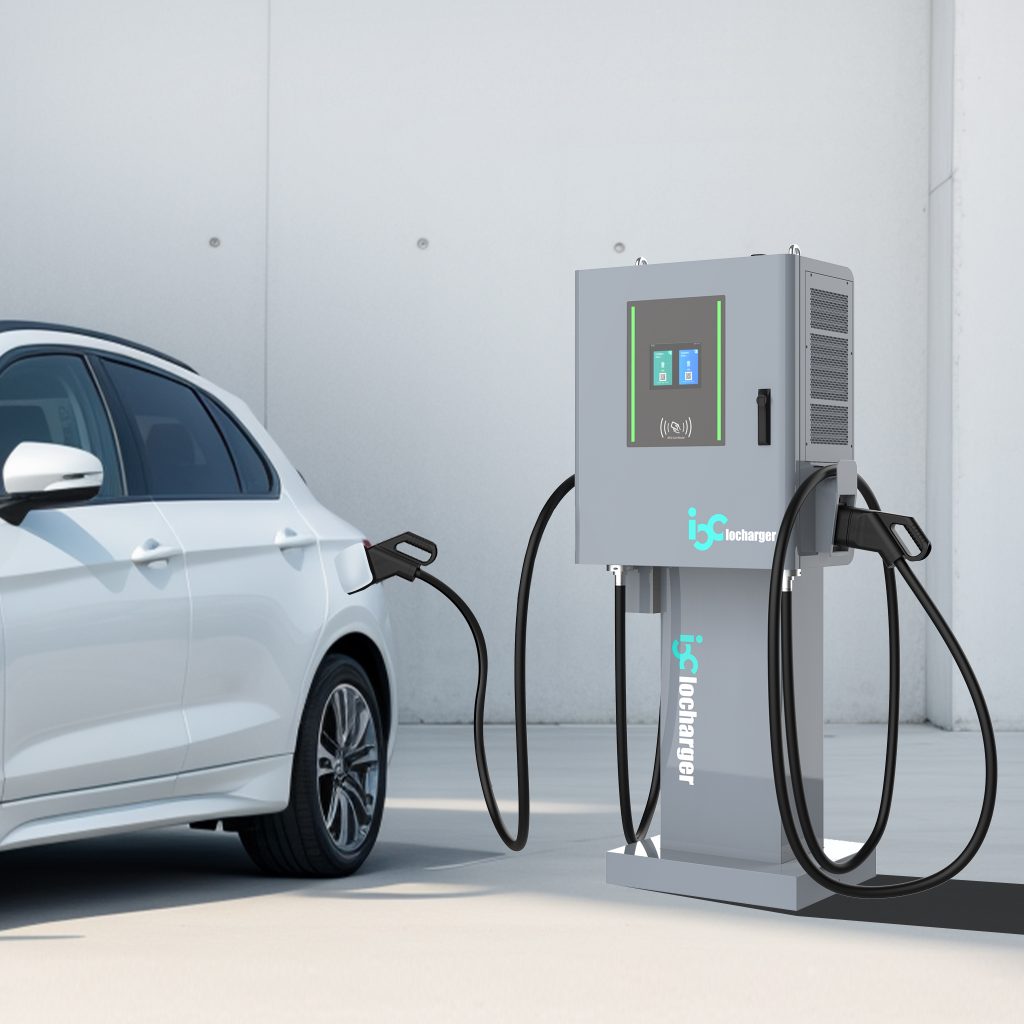
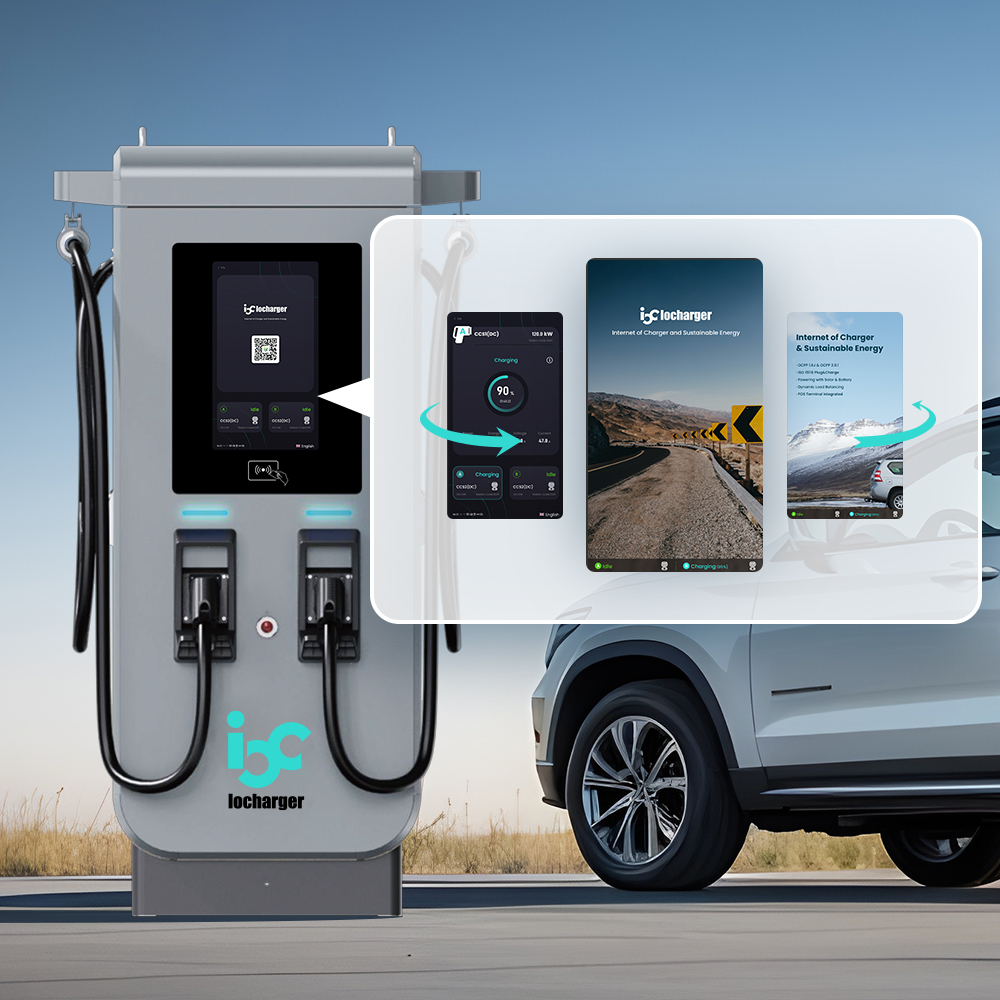
DC Fast Charging
DC fast charger with a 21.5’’ 1080P CTP touch screen, integrated with an advertising system.
- Max DC output power: 60kWto 240kW
- Output DC voltage range: 150V-1000V DC
- CCS 1/ CCS 2/ ChadeMO/ GB-T charging connector
- Cellular 4G LTE and Ethernet connection
- Support simultaneous charging and dynamic load balancing
- Payment via credit cards, RFID cards, Mobile App, Pin-Code(OTP) and Plug&Charge (ISO15118)
Top Benefits of Commercial EV Charger Management System
Remote maintenance and diagnosis of chargers, real-time statistics of charging data.
Charger, energy gateway management and one-click firmware upgrade.
User group management, RFID management, reservation record viewing and management.
Customize your pricing strategies and manage subscription billing with flexible terms.
All charge records can be queried, single data quick condition query.
Deliver an outstanding branded and localized experience to your clients with custom web and mobile apps.
Smart charging and auto fault-recovery lower your maintenance costs
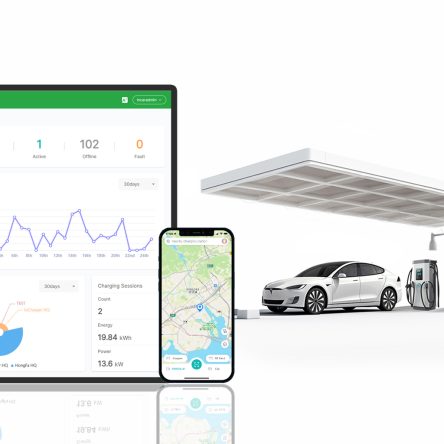
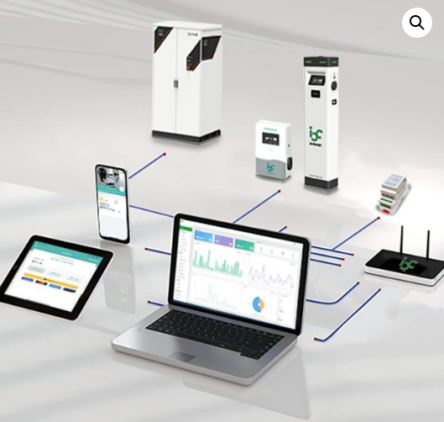
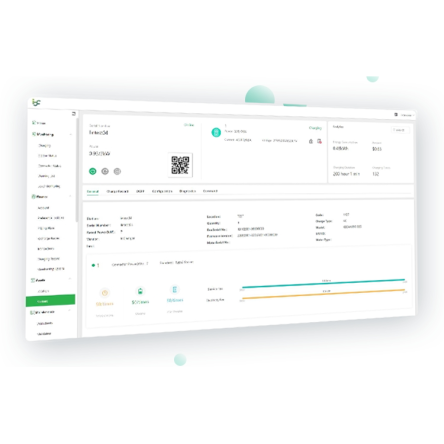




Professional Commercial EV Charging Solution Provider

OCPP 1.6J full profiles implemented including smart charging, OCPP2.0 upgradable
Electric protections include over current, short circuit, over voltage, under voltage, ground fault, lightning surge, over temperature
Supporting various installations such as IT, TN-S, TN-C and TN-C-S
OCPP server, Internet connection, Max current output and other system configuration on the webpage via PC, PAD and Mobile phone
Dynamically distributing the output power in a system with other devices, depending on the available power
Dynamic phase balancing allows our system to handle both one-phase and three-phase charging simultaneously, thereby optimizing the use of all available power while preventing grid imbalance.
FAQs about Commercial EV Charging Solution
The best EV charging station for commercial properties is the station that fits your budget and application. Contact us and our sales professionals will help you make the right choice.
Installation time varies depending on the complexity of the system, the number of stations, and the existing electrical infrastructure. A typical installation could take from a few days to several weeks.
Yes, iocharger offers customization options for EV charging stations, including adding your company logo or branding.
Choosing the right solution depends on factors like the number of EV drivers you expect to serve, the type of charging speeds you need, your budget, and whether you require networked chargers with billing and monitoring capabilities. Consultation with an iocharger’s professional can help tailor the solution to your needs.
General maintenance: This includes proper storage, cleaning, inspection, and replacement of worn-out parts.
Software updates: Charging station software often requires updates to fix bugs, add features, or remain compliant.
Electrical testing: Test the existing electrical infrastructure’s ground integrity, resistance, voltage potential, and other electrical safety components.



